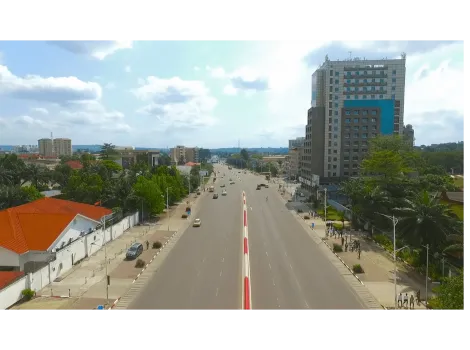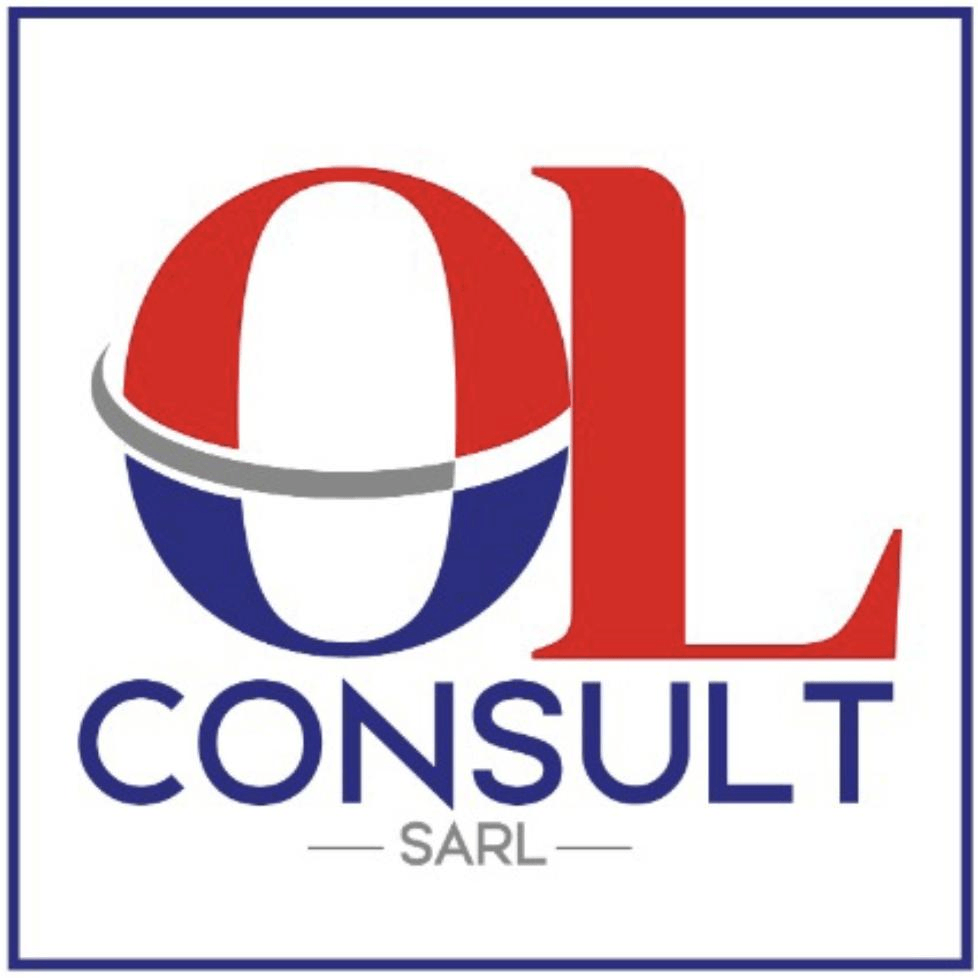
OL CONSULT
We're not just consultants; we're your partners in growth. Together, we can transform your business and position you for success in the DRC and beyond. Let's work together to take your business to the next level.

Frequently asked questions
Why to invest in D.R. Congo ?
Investing in the Democratic Republic of Congo (D.R. Congo) can be a lucrative opportunity for several reasons:
1. Abundant Natural Resources: D.R. Congo is rich in natural resources, including minerals such as cobalt, copper, diamonds, gold, and tin. It has one of the largest reserves of these minerals in the world. Investing in the mining sector can be highly profitable.
2. Strategic Location: D.R. Congo is strategically located in the heart of Africa, making it a gateway to other African markets. Its central location provides access to a large consumer base and allows for easy distribution of goods and services throughout the region.
3. Large Consumer Market: With a population of over 80 million people, D.R. Congo offers a significant consumer market. Investing in sectors such as retail, telecommunications, and consumer goods can tap into this vast market potential.
4. Infrastructure Development: The government of D.R. Congo has prioritized infrastructure development, including roads, railways, ports, and energy projects. Investing in infrastructure can provide opportunities for growth and contribute to the country's economic development.
5. Economic Reforms: The government has implemented economic reforms to attract foreign investment and improve the business environment. These reforms include simplifying administrative procedures, reducing bureaucracy, and promoting transparency.
6. Agricultural Potential: D.R. Congo has vast agricultural potential, with fertile land and favorable climatic conditions. Investing in agriculture can contribute to food security and agribusiness development.
7. Growing Middle Class: The middle class in D.R. Congo is expanding, leading to increased consumer spending and demand for goods and services. This presents opportunities for investment in sectors such as real estate, retail, and hospitality.
8. Investment Incentives: The government offers various investment incentives, including tax breaks, customs duty exemptions, and investment protection guarantees. These incentives aim to attract foreign direct investment and support economic growth.
What different reforms have been implemented in D.R.C. to improve the business environment ?
The Democratic Republic of Congo (D.R. Congo) has implemented several reforms to improve the business environment and attract foreign investment. Some of the key reforms include:
1. Simplification of Administrative Procedures: The government has taken steps to simplify administrative procedures for businesses. This includes streamlining the process for business registration, obtaining permits, and licenses. The aim is to reduce bureaucracy and make it easier for businesses to operate.
2. Investment Code: D.R. Congo has enacted an Investment Code that provides a legal framework for investment. The code offers incentives such as tax breaks, customs duty exemptions, and investment protection guarantees to attract foreign direct investment.
3. Improving Access to Finance: The government has taken measures to improve access to finance for businesses. This includes promoting the development of the banking sector, microfinance institutions, and other financial services providers. Efforts have also been made to strengthen the legal framework for secured transactions and credit reporting.
4. Infrastructure Development: The government has prioritized infrastructure development to support economic growth. This includes the construction and rehabilitation of roads, railways, ports, and energy projects. Improved infrastructure can facilitate trade and investment by reducing transportation costs and improving connectivity.
5. Anti-Corruption Measures: The government has taken steps to combat corruption, which is a significant challenge in D.R. Congo. Anti-corruption agencies have been established, and efforts have been made to strengthen transparency and accountability in public administration. These measures aim to create a more transparent and fair business environment.
6. Tax Reforms: The government has implemented tax reforms to simplify the tax system and make it more business-friendly. This includes reducing tax rates, improving tax administration, and providing tax incentives for certain sectors or regions.
7. Public-Private Partnerships (PPPs): D.R. Congo has promoted public-private partnerships as a means to attract private investment in infrastructure projects. PPPs can help mobilize private sector expertise and resources to develop critical infrastructure and public services.
These reforms are aimed at improving the business environment, attracting investment, and promoting economic growth in D.R. Congo.
What is the current exchange system in D.R.C. ?
The currency of the Democratic Republic of Congo (D.R. Congo) is the Congolese franc (CDF). The exchange rate of the Congolese franc to other currencies can fluctuate and is determined by the foreign exchange market.
As of the current date, 24th October 2023, the exchange rate of the Congolese franc to the United States dollar (USD) is approximately 1 USD = 2,000 CDF. Please note that exchange rates can vary and it is advisable to check with a reliable source or financial institution for the most up-to-date rates.
It is important to note that the exchange system in D.R. Congo is subject to market forces and can be influenced by various factors such as economic conditions, government policies, and global market trends. Therefore, it is recommended to stay updated on the latest exchange rates before engaging in any currency exchange transactions.
What guarantees are provided to investments in D.R. Congo ?
In the Democratic Republic of Congo (D.R. Congo), there are several guarantees and protections provided to investments to promote a favorable business environment. Here are some of the key guarantees:
1. Constitutionally Protected Rights: The D.R. Congo's constitution guarantees the protection of property rights, including the right to own, use, and dispose of property. It also ensures the right to freely engage in economic activities.
2. Investment Code: The Investment Code of D.R. Congo provides a legal framework for investment protection. It guarantees equal treatment for both domestic and foreign investors, protection against expropriation without fair compensation, and the right to repatriate profits and capital.
3. Bilateral Investment Treaties (BITs): D.R. Congo has signed several bilateral investment treaties with other countries. These treaties provide additional protections to investors, including protection against unfair treatment, expropriation, and the right to international arbitration in case of disputes.
4. Investment Promotion Agency: The D.R. Congo has an Investment Promotion Agency (ANAPI) that assists investors in navigating the investment process. ANAPI provides information, facilitates administrative procedures, and offers support to investors.
5. Special Economic Zones (SEZs): D.R. Congo has established Special Economic Zones to attract investments. These zones offer various incentives such as tax benefits, simplified administrative procedures, and infrastructure support.
6. Dispute Resolution Mechanisms: D.R. Congo has established mechanisms for resolving investment disputes.
This includes access to domestic courts, as well as international arbitration through institutions such as the International Centre for Settlement of Investment Disputes (ICSID).
What are the priority sectors of the D.R. Congo ?
The Democratic Republic of Congo (D.R. Congo) has identified several priority sectors for investment and economic development. These sectors have been identified based on their potential for growth, job creation, and contribution to the country's overall development. Here are some of the priority sectors in D.R. Congo:
1. Mining and Natural Resources: D.R. Congo is rich in mineral resources, including copper, cobalt, gold, diamonds, and tin. The mining sector is a significant contributor to the country's economy and offers opportunities for investment in exploration, extraction, processing, and value addition.
2. Agriculture and Agribusiness: D.R. Congo has vast agricultural potential, with fertile land and favorable climatic conditions. The country aims to develop its agriculture sector to enhance food security, promote exports, and create employment. Investment opportunities exist in crop production, livestock farming, agro-processing, and agricultural infrastructure.
3. Energy and Power: D.R. Congo has significant hydropower potential, with several major rivers flowing through the country. The government is prioritizing the development of the energy sector to increase access to electricity and promote industrialization. Investment opportunities exist in hydropower projects, renewable energy, and power transmission infrastructure.
4. Infrastructure Development: D.R. Congo requires significant investment in infrastructure, including roads, railways, ports, airports, and telecommunications. The government is seeking private sector participation in infrastructure development through public-private partnerships (PPPs) and other investment models.
5. Manufacturing and Industrialization: D.R. Congo aims to promote domestic manufacturing and industrialization to add value to its natural resources and reduce dependence on imports. Investment opportunities exist in sectors such as textiles, cement, steel, pharmaceuticals, and consumer goods.
6. Tourism and Hospitality: D.R. Congo has diverse natural attractions, including national parks, wildlife reserves, and cultural heritage sites.
The government is focusing on developing the tourism sector to attract both domestic and international visitors. Investment opportunities exist in eco-tourism, hospitality infrastructure, and travel services.
What kinds of taxes do companies in D.R.C. pay ?
Companies in the Democratic Republic of Congo (D.R. Congo) are subject to various taxes and levies. Here are some of the main taxes that companies are required to pay:
1. Corporate Income Tax: Companies are subject to corporate income tax on their profits. The standard corporate income tax rate is 30%. However, certain sectors, such as mining and petroleum, may have specific tax rates or fiscal regimes.
2. Value Added Tax (VAT): Companies are required to charge and collect VAT on the sale of goods and services. The standard VAT rate is 16%. However, certain goods and services may be subject to reduced rates or exemptions.
3. Payroll Taxes: Companies are required to withhold and remit payroll taxes on employee salaries. This includes social security contributions, pension contributions, and other payroll-related taxes.
4. Withholding Taxes: Companies are required to withhold and remit taxes on certain payments made to non-resident individuals or entities. This includes dividends, interest, royalties, and fees for technical services.
5. Property Taxes: Companies that own or lease property are subject to property taxes. The rates and calculation methods may vary depending on the location and type of property.
6. Customs Duties: Companies that import or export goods are subject to customs duties. The rates and calculation methods depend on the type of goods and the applicable customs regulations.
7. Excise Taxes: Certain goods, such as alcohol, tobacco, and petroleum products, are subject to excise taxes. The rates and calculation methods vary depending on the specific product.
8. Local Taxes: Local authorities may impose additional taxes and levies on companies operating within their jurisdiction. These may include business license fees, local service taxes, and other local taxes.
It is important to note that tax regulations and rates may change over time, and companies are advised to consult with tax professionals or local authorities for the most up-to-date information and guidance on tax obligations in D.R. Congo.
